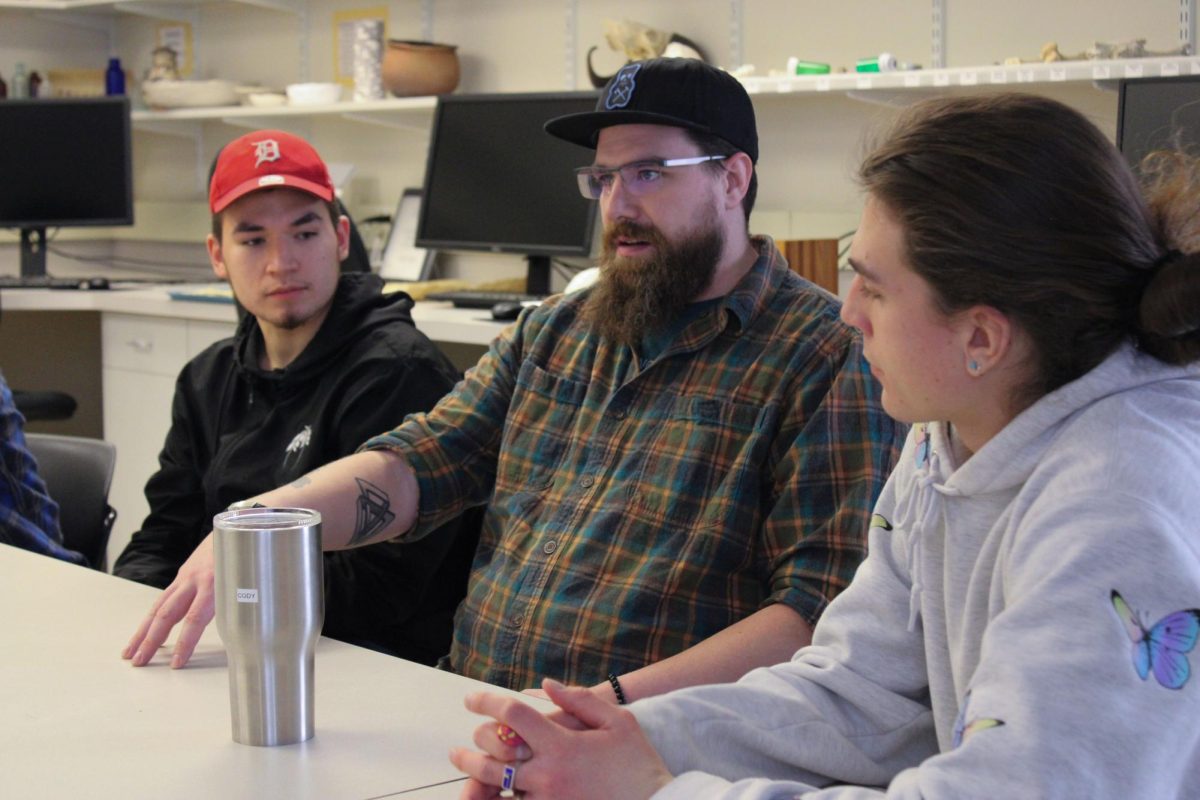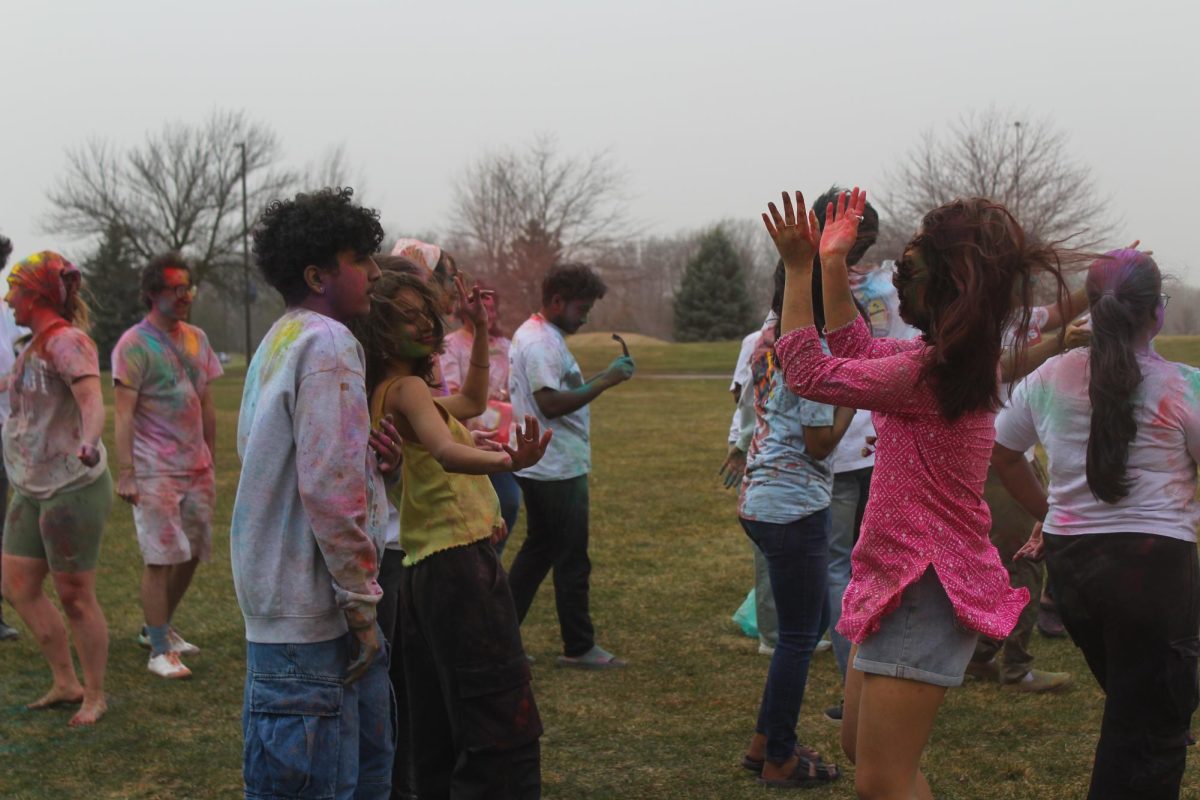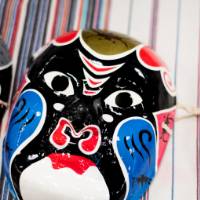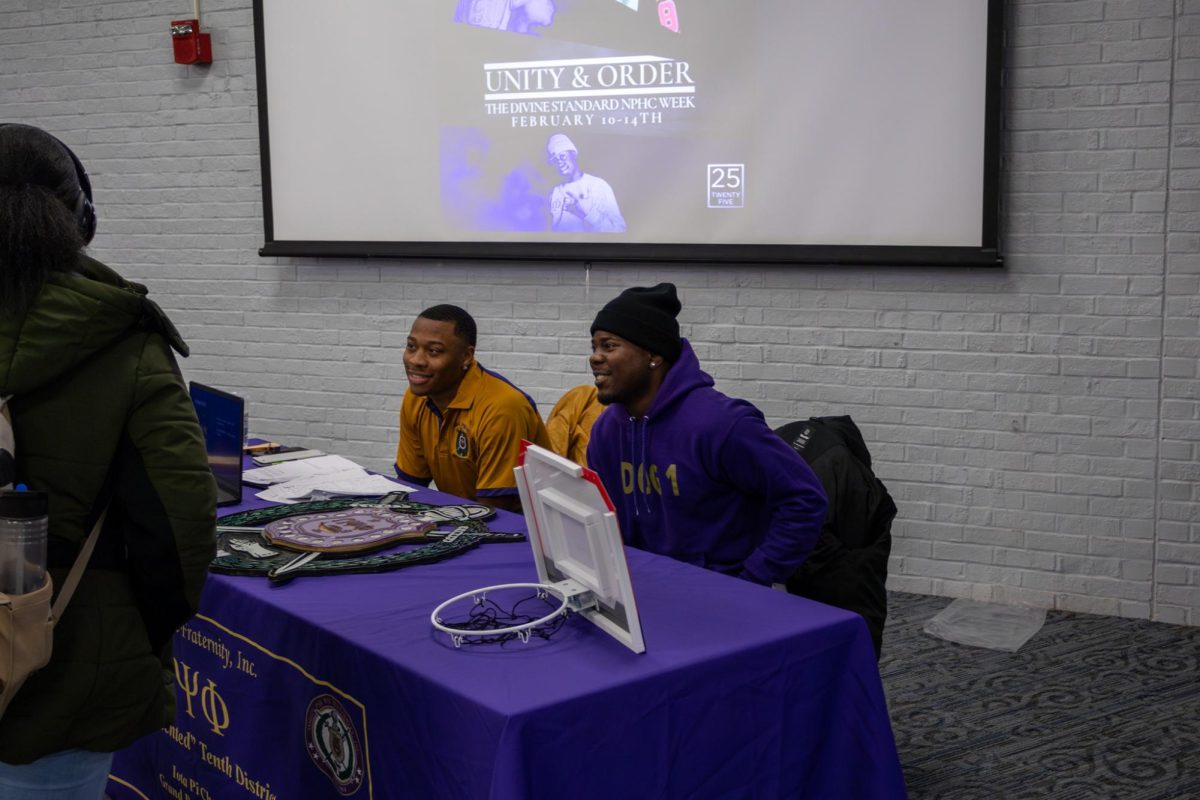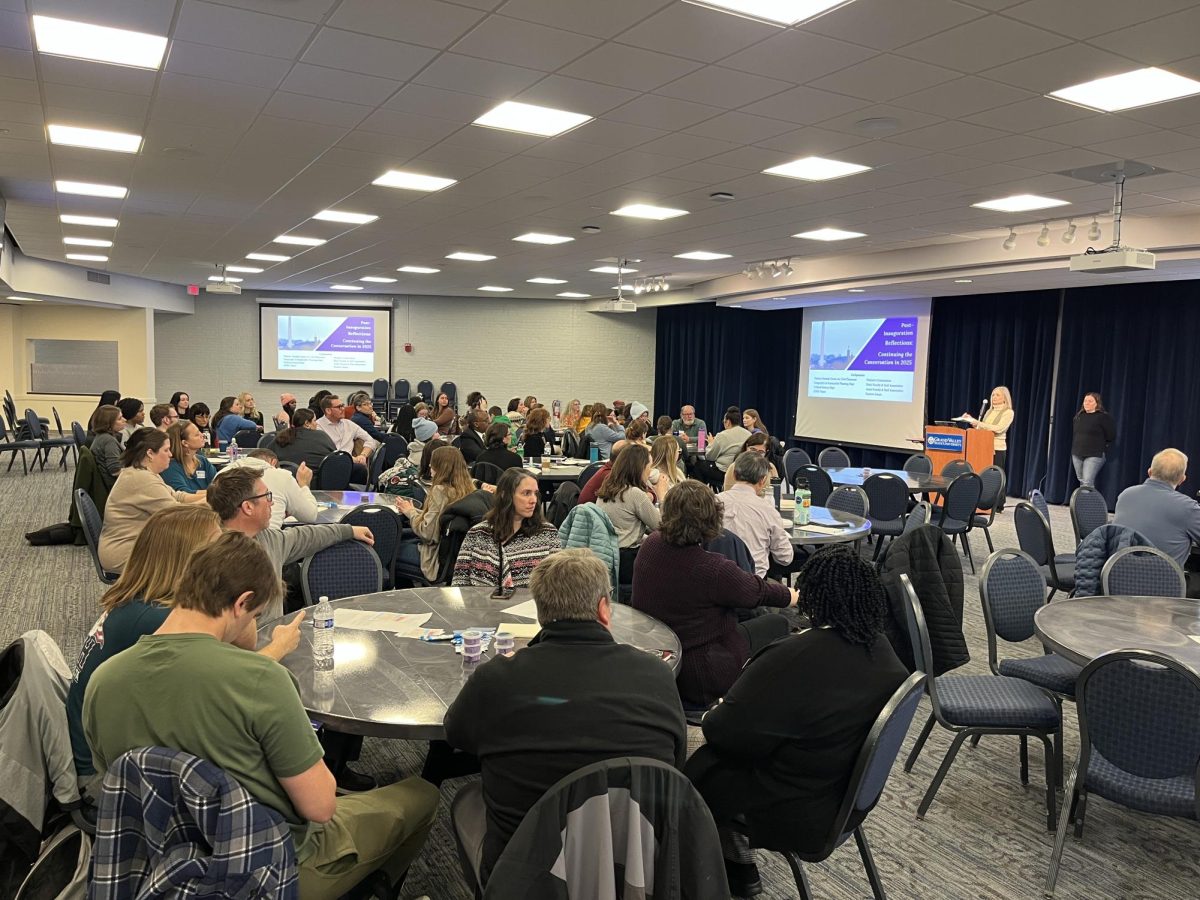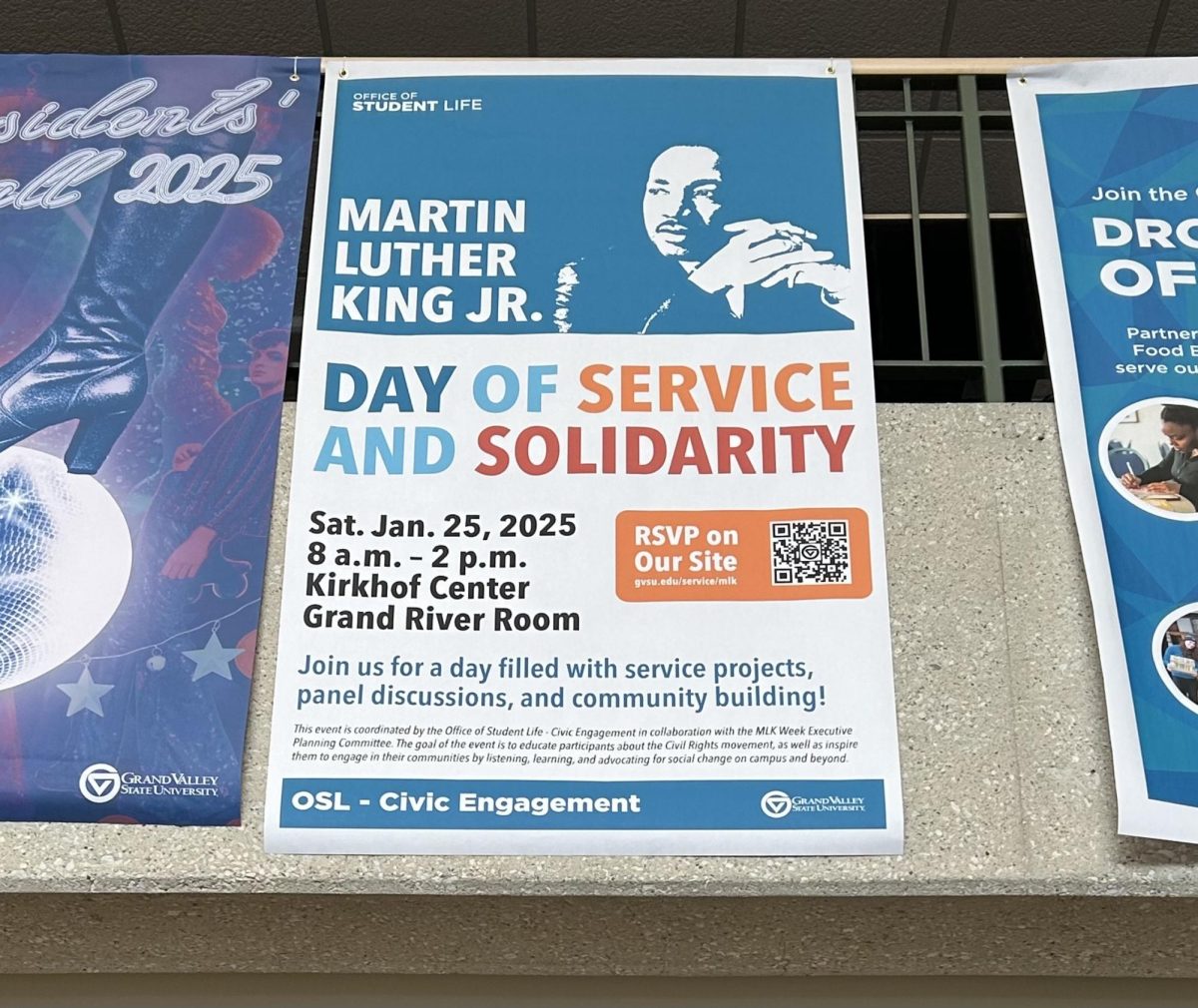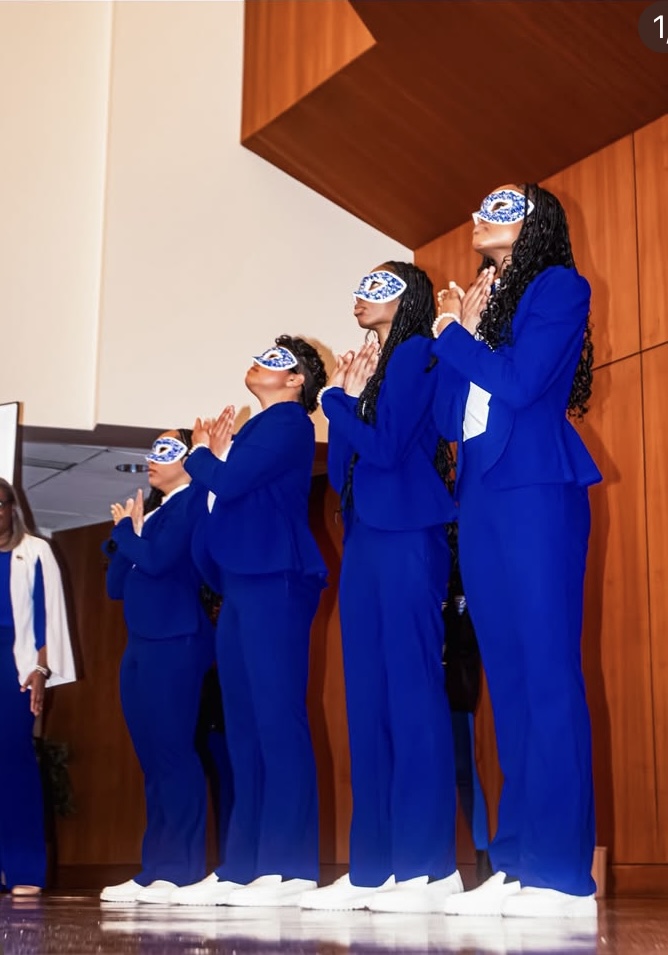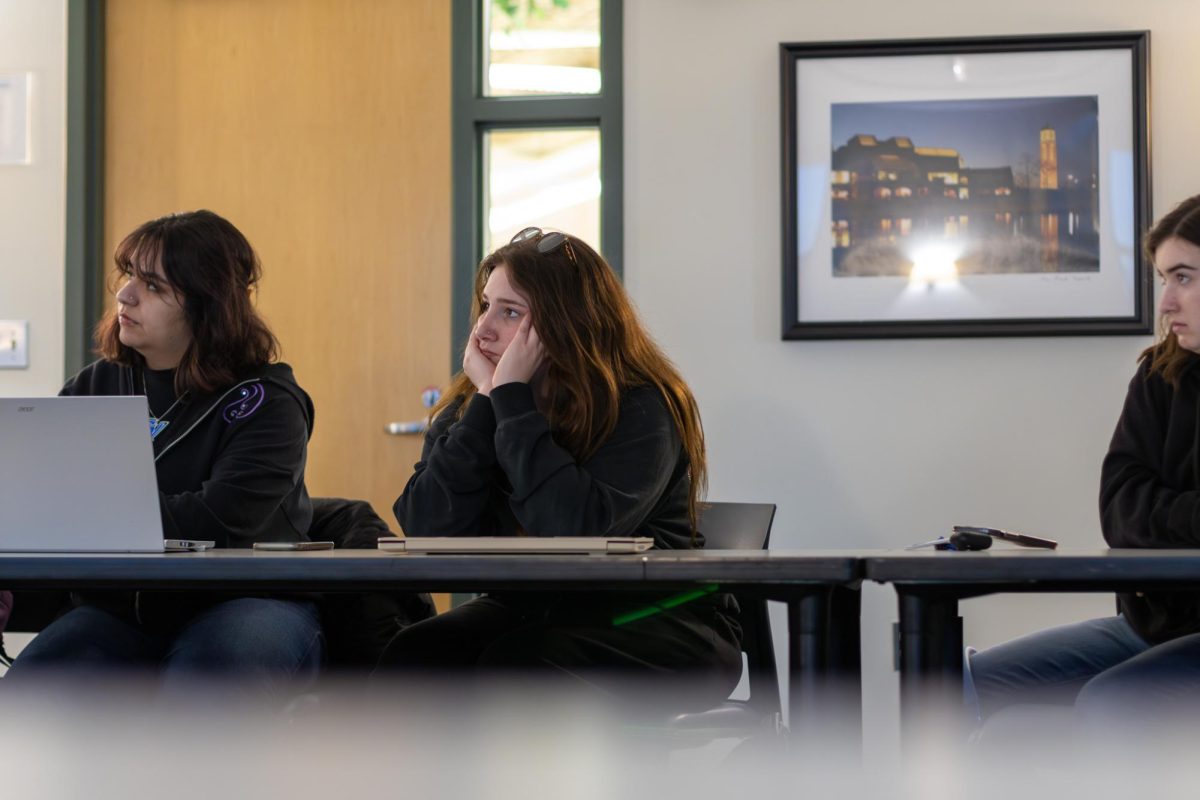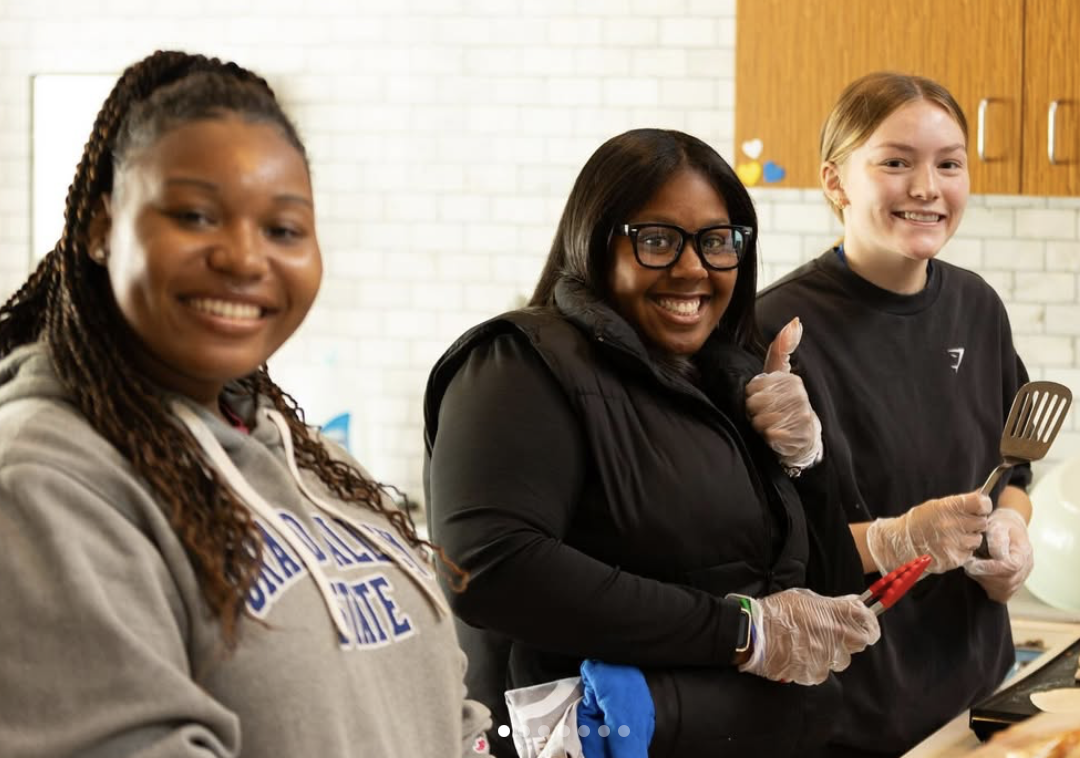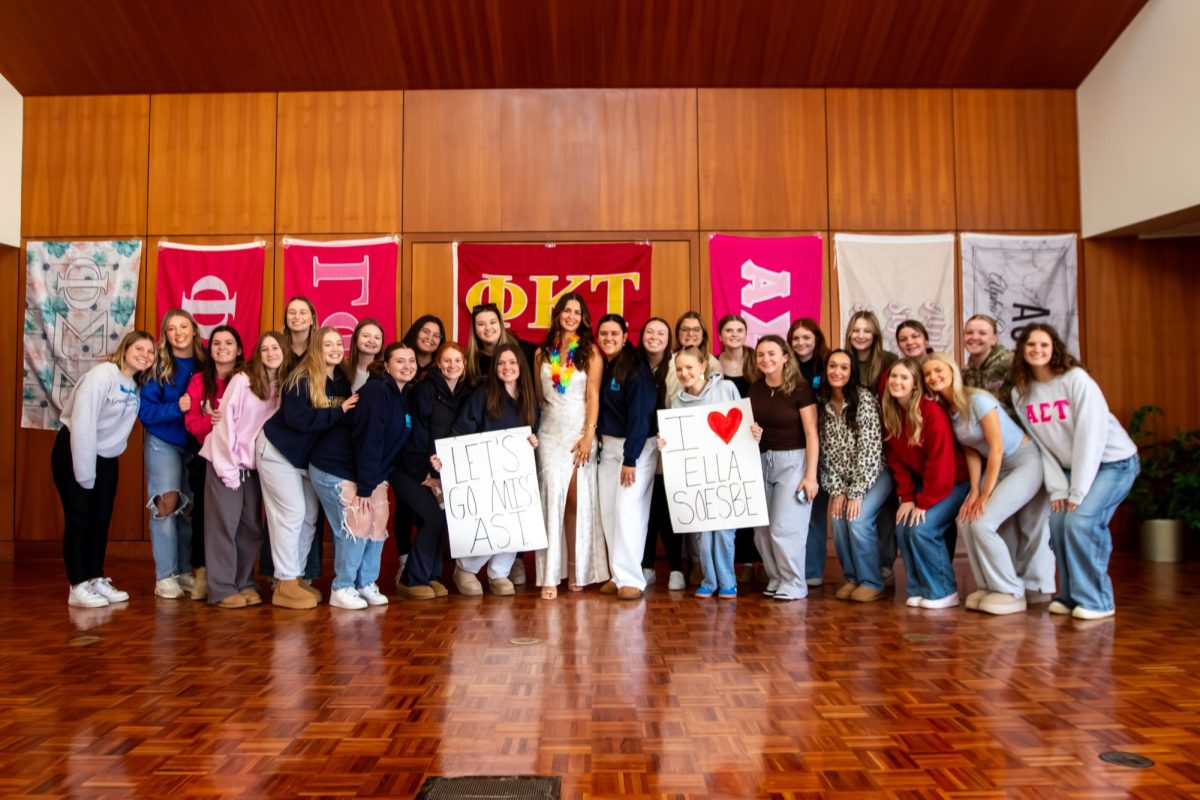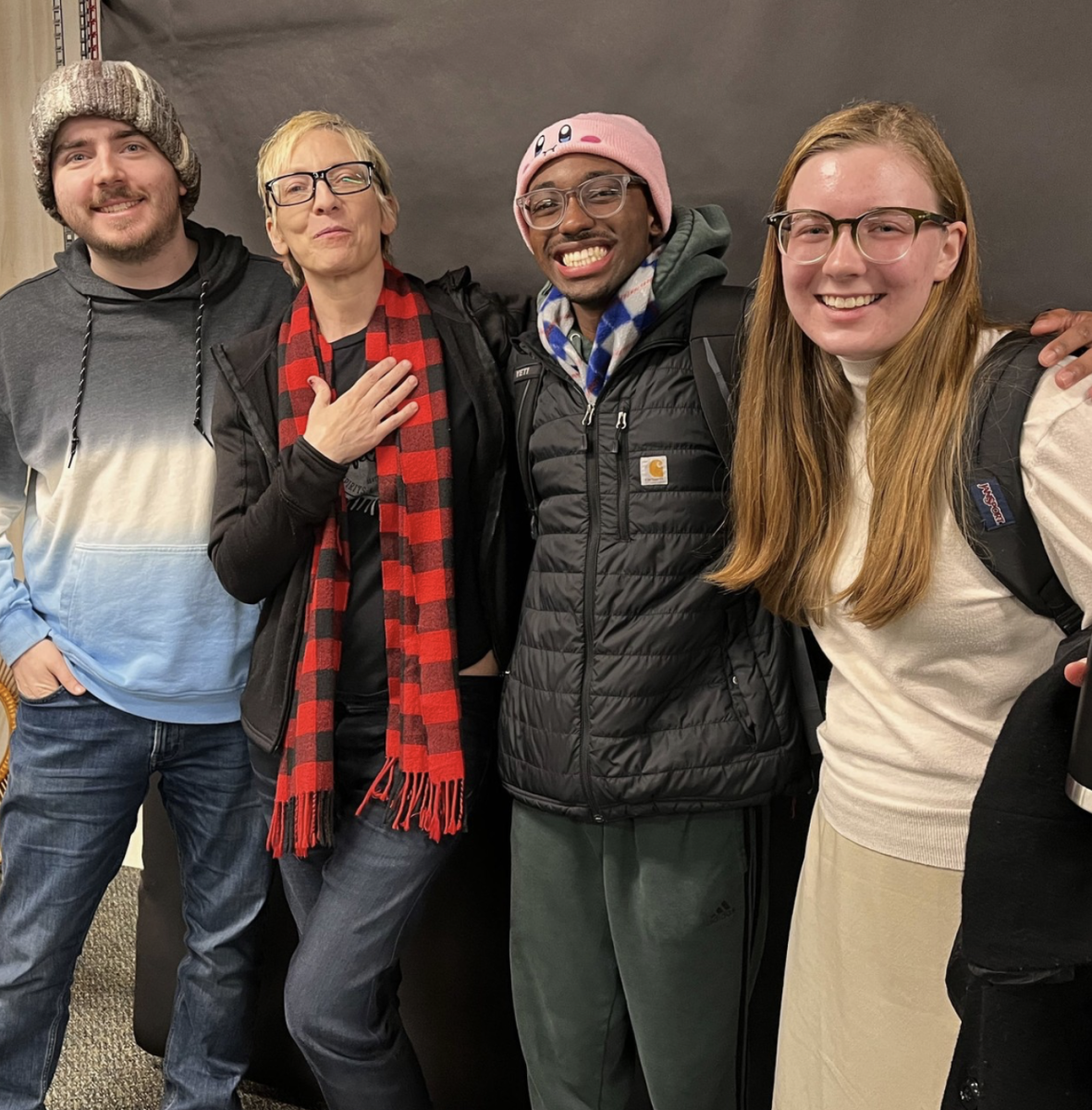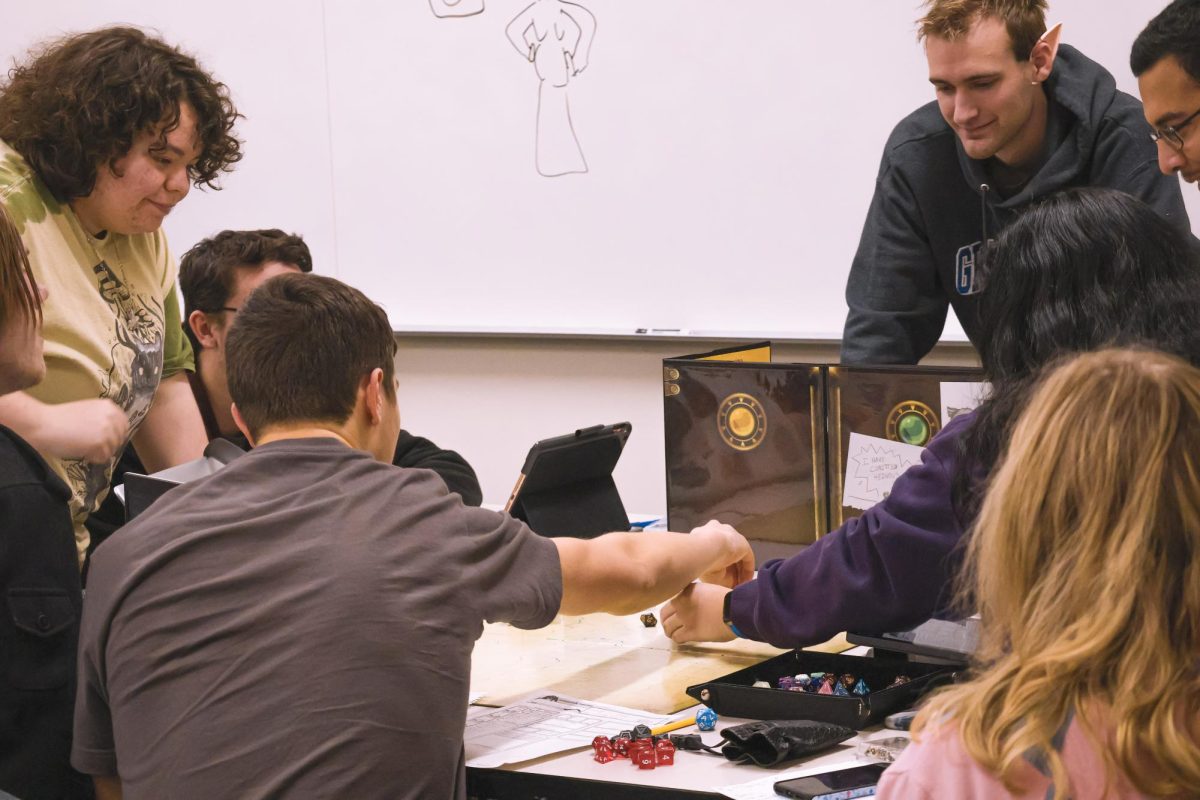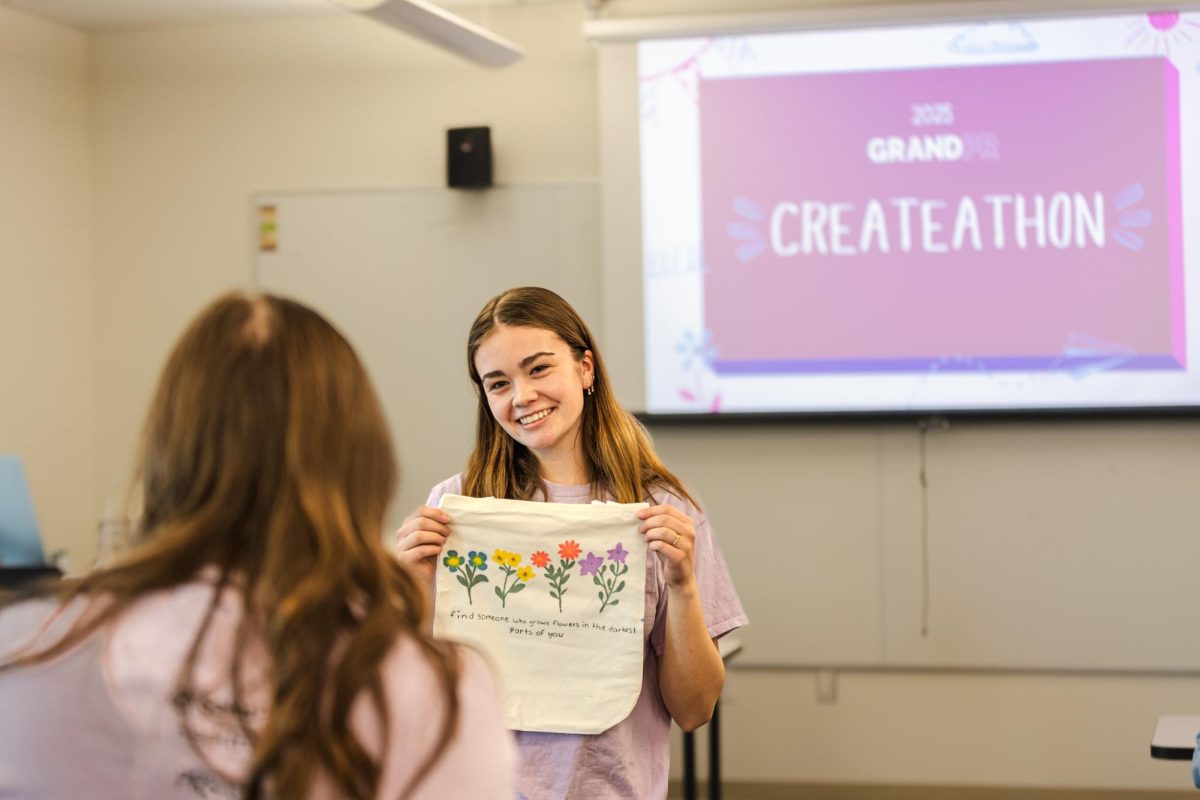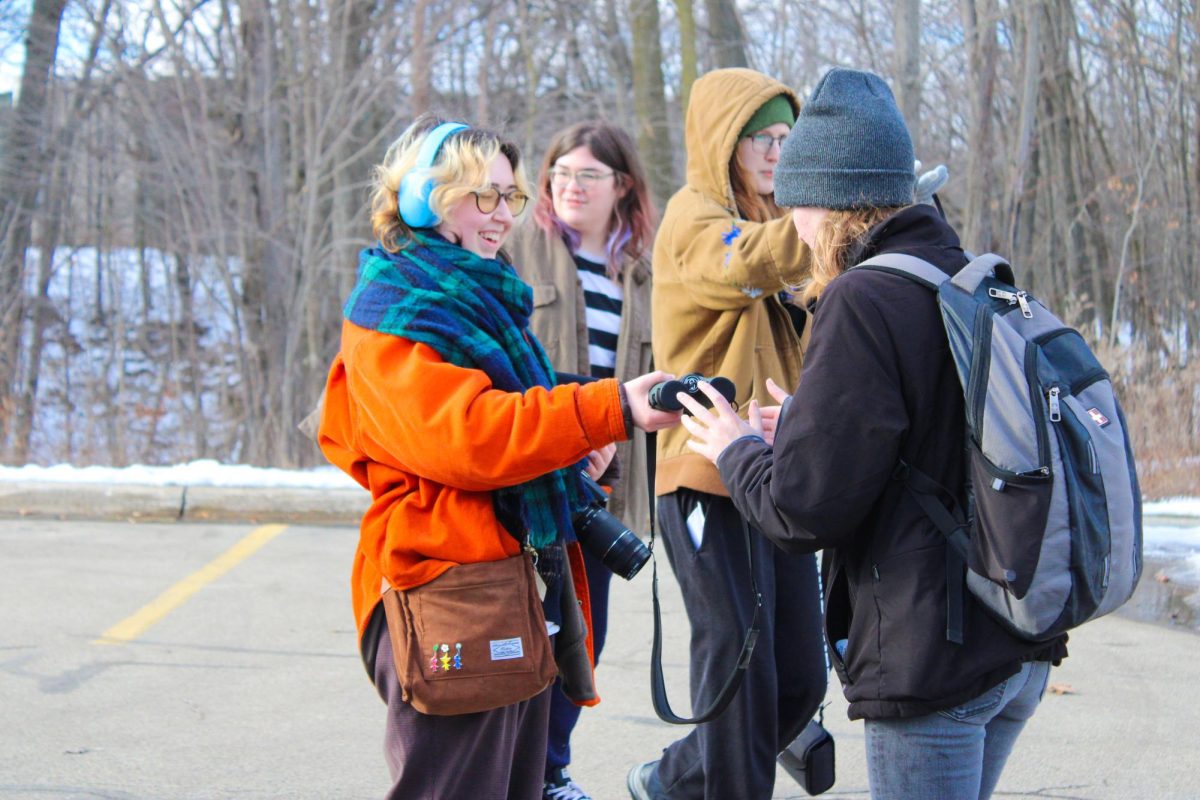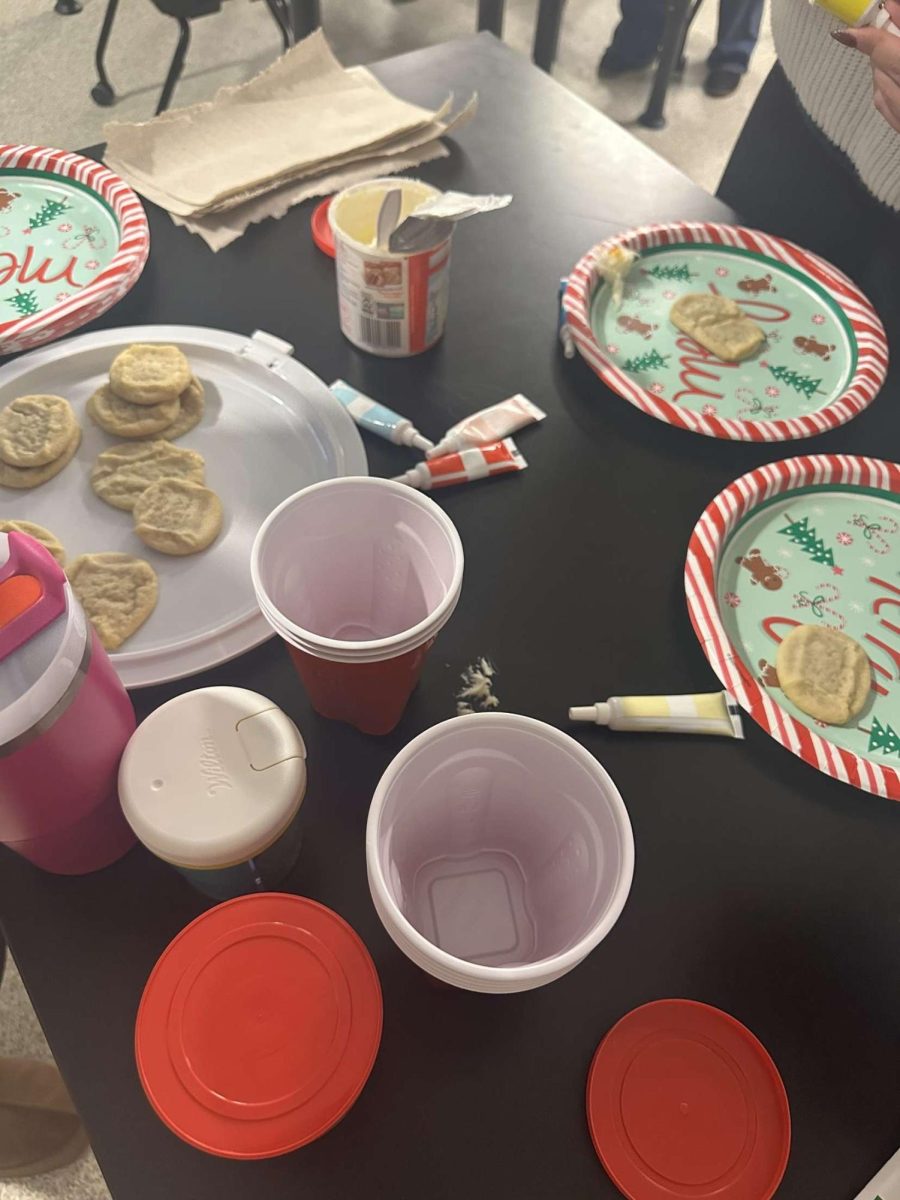Editorial Revision 2/3- The original article wrongly stated that Anthropology Club hosted “Land Acknowledgements in Anthropology: Starting the Conversation,” instead of the Anthropology Department.
On Friday, Jan. 31, Grand Valley State University’s Anthropology Department hosted “Land Acknowledgements in Anthropology: Starting the Conversation,” which was planned by Anthropology Professor Steven Dorland and Lin Bardwell, senior advisor to Native Affairs at GVSU. The event brought together faculty, students and community members to explore the significance of land acknowledgments and the deep history of Indigenous tribes whose land the University occupies.
During the event, attendees reflected on the role of land acknowledgments in academic settings and beyond. Land acknowledgments serve as a reminder that universities and institutions across North America were built on Indigenous land. They honor the history, traditions and ongoing contributions of Indigenous peoples, while also encouraging dialogue about ways to support Indigenous communities. Those at the event discussed how anthropology as a field can help build relationships with Indigenous faculty, students and local tribal nations.
GVSU is located on the ancestral lands of the Three Fires Confederacy, which consists of the Ojibwe (Chippewa), Odawa (Ottawa) and Bodéwadmi (Potawatomi) peoples. These tribes are part of the larger Anishinaabe cultural and linguistic group, which has historically lived throughout the Great Lakes region. The discussion highlighted the importance of understanding these tribes’ origins, their historical connections to the Grand River and their continued presence in Michigan.
The Odawa, known for their trading networks, historically lived along the shores of Lake Michigan and played a vital role in commerce between Indigenous nations and European settlers. The Grand River was a key trade route used by the Odawa for transporting goods and establishing trade relationships. The Ojibwe, the largest Indigenous group in the region, have been known for their spiritual guidance and hunting traditions. The Potawatomi, often referred to as the “Keepers of the Fire” within the Three Fires Confederacy, were responsible for maintaining the central council fire, which was a sacred flame used for unity and decision-making among tribes.
Many Potawatomi people were forcibly displaced in the 19th century due to U.S. government policies but have since reestablished communities in Michigan. They have played a role in forming alliances and maintaining cultural traditions that continue today.
“The Three Fires People are Indigenous to this land, which means this is their ancestral territory,” read the event’s land acknowledgment. “Every university is built on stolen, native land. We are guests on their (Indigenous peoples) land, and one way to practice right relations is to develop genuine ways to acknowledge the histories and traditions of the people who originated here first, who are still here, and who tend to the land always.”
Indigenous history discussions and advocacy extend beyond this event and have been an ongoing topic of conversation at GVSU. During the Fall 2024 semester, National Native American Heritage Month was celebrated through Indigi-Fest, a cultural event organized by the Office of Multicultural Affairs and Indigenous students and alumni. The event featured workshops on food sovereignty, language preservation and decolonizing education, as well as a screening of “Two-Spirit PowWow,” which highlights the inclusion of various identities in Indigenous traditions. Other advocacy efforts made by the Native American Student Association (NASA) have aimed to raise awareness of Missing and Murdered Indigenous People (MMIP) and other Indigenous crises and issues.
The land acknowledgment discussion is part of the Anthropology Department’s broader mission to provide students with opportunities to engage in meaningful conversations with others.




